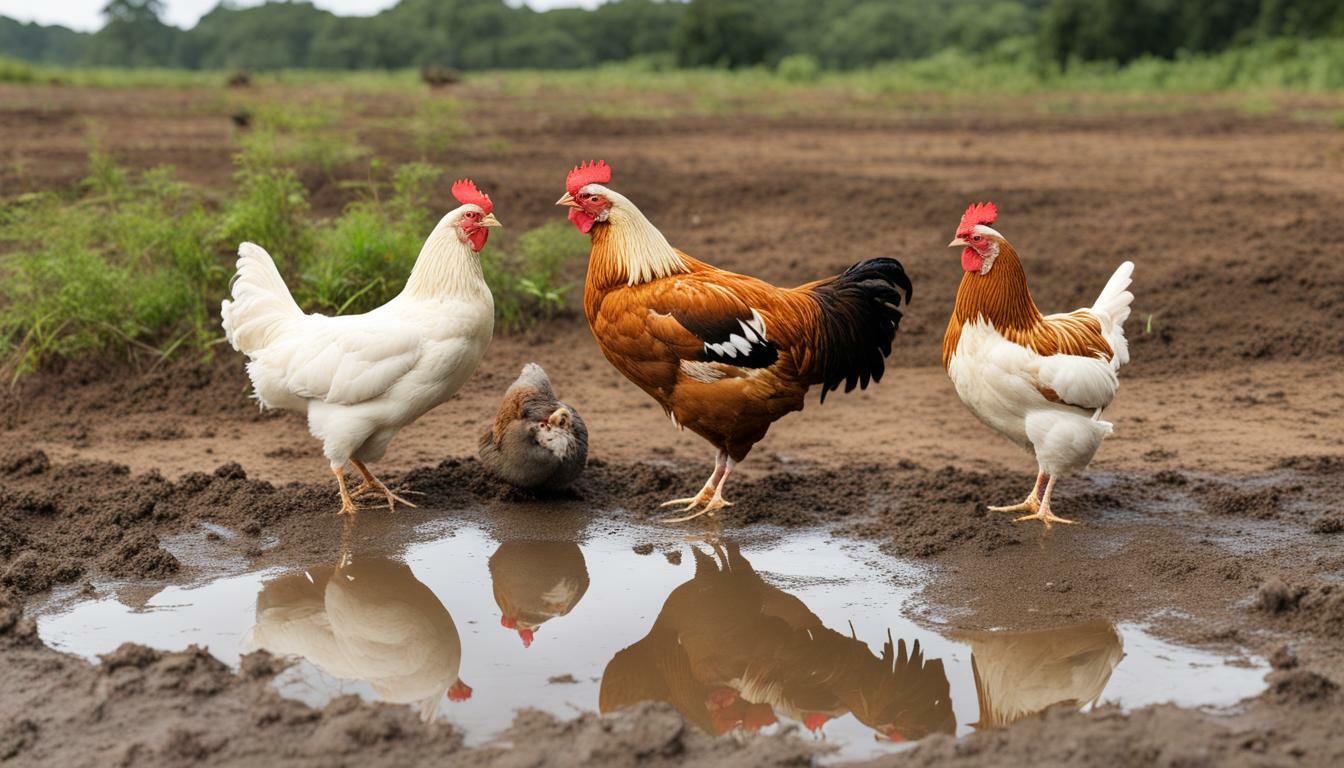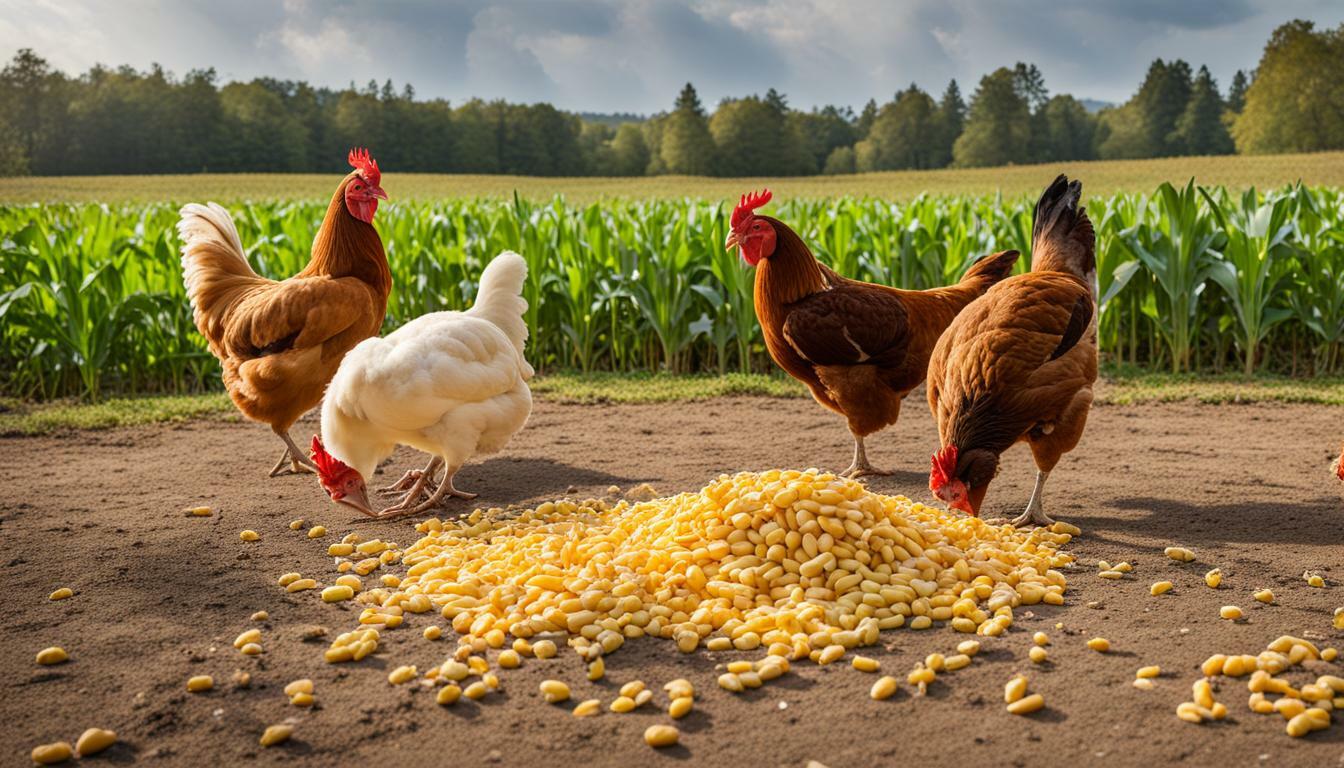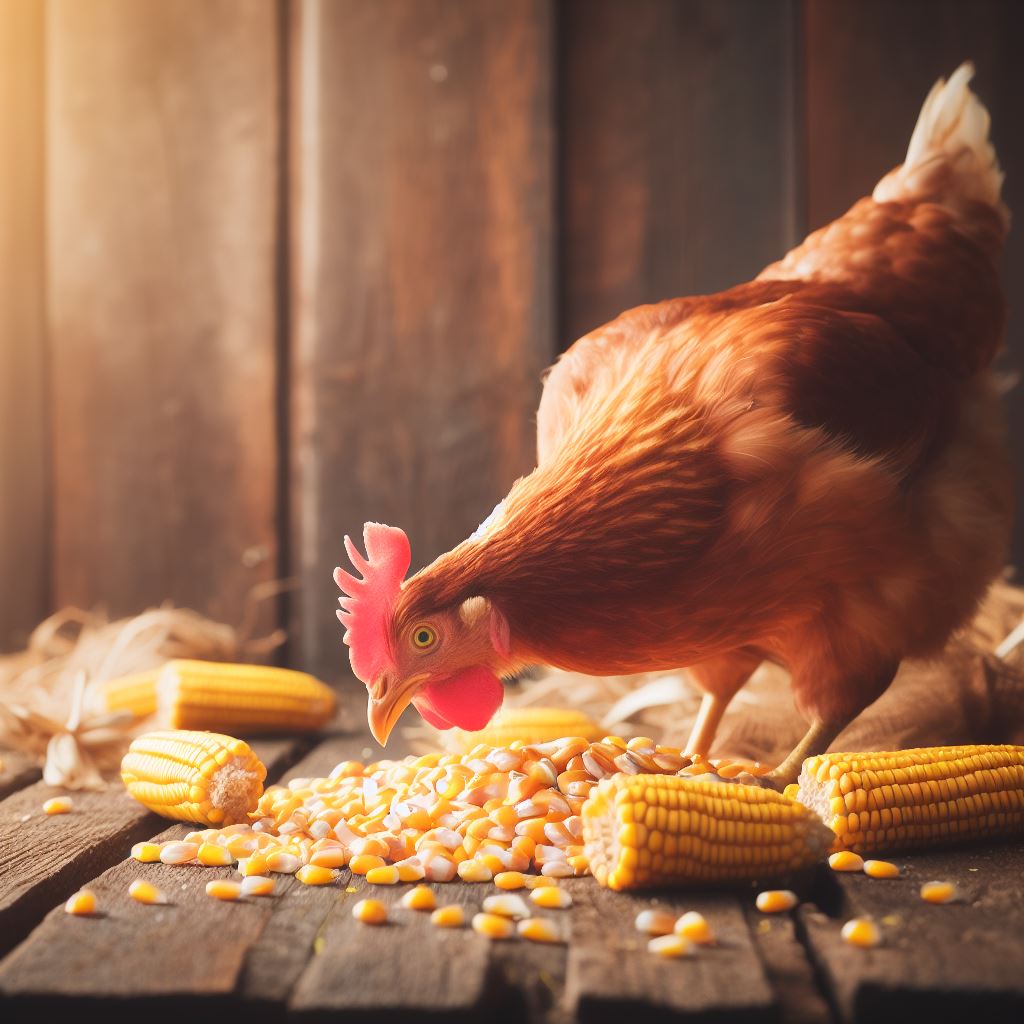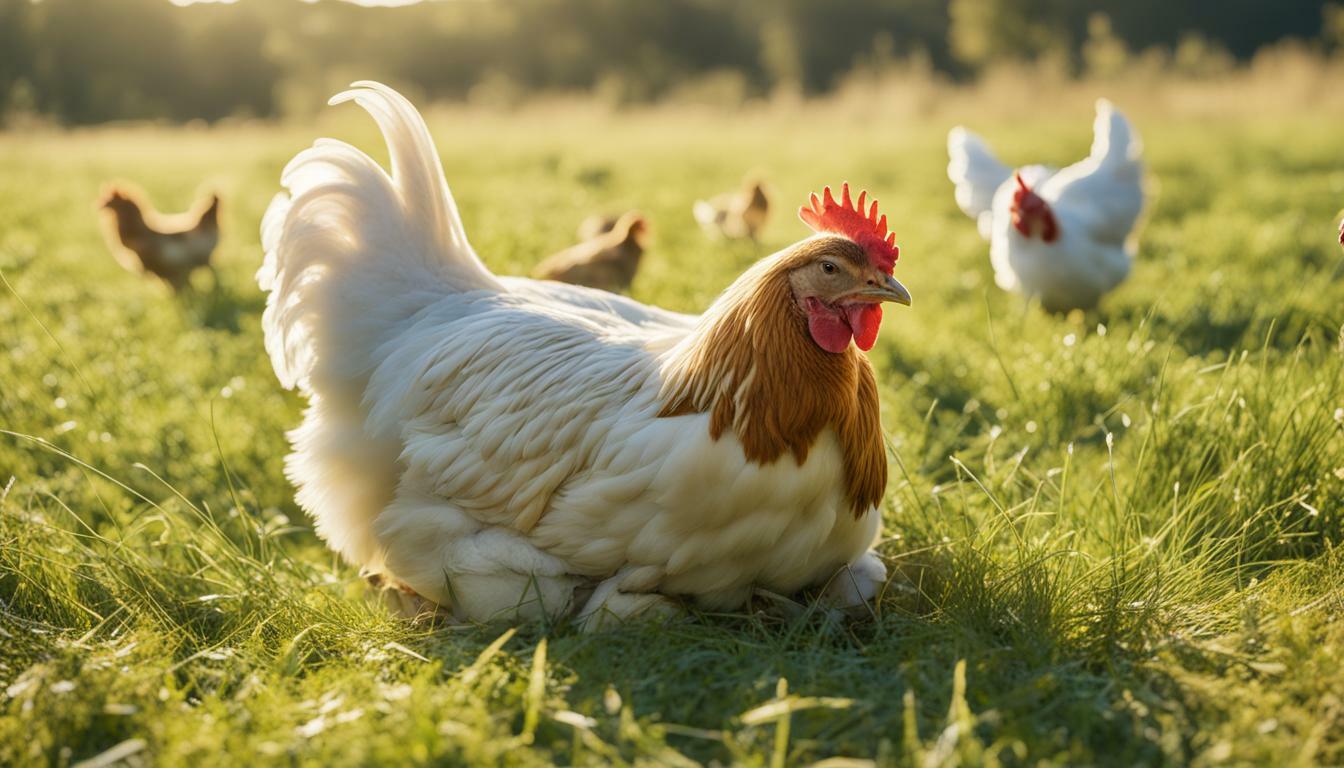Do Chickens Eat Mosquito Larvae? Unraveling the Truth!

Table of content:
- Do Chickens Naturally Eat Mosquito Larvae?
- Why Do Chickens Eat Mosquito Larvae?
- Do Mosquito Larvae Hurt Chickens When Eaten?
- Do Chickens Eat ONLY Mosquito Larvae?
- Can Chickens Control Mosquitoes?
- Tips for Using Chickens to Control Mosquitoes
- Are Mosquito Larvae Good Chicken Treats?
- How To Harvest and Feed Mosquito Larvae
- Final Thoughts
Backyard chickens are great for controlling pests like mosquitoes. But do chickens actually eat mosquito larvae? And can chickens help reduce mosquito populations on your property?
In this article, we’ll explore the interesting relationship between chickens and mosquitoes. We’ll cover things like:
- Whether chickens actively hunt mosquito larvae
- What parts of the mosquito life cycle chickens can disrupt
- How to leverage chickens for mosquito control
- If mosquito larvae are actually good chicken treats
Let’s get pecking!
Do Chickens Naturally Eat Mosquito Larvae?
Many people wonder – do chickens actively hunt and eat mosquito larvae in standing water? Or is this just a myth?
The answer is yes – chickens WILL absolutely eat mosquito larvae.
Chickens are omnivores and opportunistic eaters. They love protein-rich insects and bugs. Mosquito larvae squirming around in standing water are like little protein power snacks for chickens.
Given the chance, chickens will eagerly gobble up nutritious mosquito larvae they find in:
- Puddles
- Ponds
- Water troughs
- Any standing water sources
In fact, chickens have a voracious appetite for mosquito larvae and can consume hundreds per day when available.
Some studies have even shown that mosquito larvae may make up a whopping 25-30% of a free-range chicken’s diet during wet months when larvae are abundant.
So in a nutshell – yes, chickens LOVE snacking on juicy mosquito larvae whenever they can! It’s an entirely natural behavior.
Why Do Chickens Eat Mosquito Larvae?
But why exactly are chickens so obsessed with eating mosquito larvae whenever they can?
There are a few key reasons:
1. Chickens are omnivores
Chickens are omnivores, meaning they enjoy a diverse diet of plants, seeds, and animal proteins like insects. This gives them a strong natural drive to seek out and eat larvae.
2. Larvae provide protein
Mosquito larvae are packed with protein – up to 82% protein on a dry matter basis, in fact. And protein-rich insects make up a healthy part of the natural chicken diet.
3. Foraging is instinctual
Chickens have an innate drive to forage and peck at the ground seeking food. Mosquito larvae squirming in standing water trigger this instinct.
4. Chickens will eat whatever they can
Quite simply, chickens are opportunistic eaters. They’ll eat almost anything they can get their beaks on. So larvae readily get gobbled up.
5. Larvae may provide nutrition
Some research indicates mosquito larvae could provide B vitamins, minerals, and other nutrients chickens seek. This makes larvae attractive as feed.
So in summary, chickens eagerly eat mosquito larvae because their bodies and instincts are adapted to seek out this protein-packed food source. It’s an entirely natural behavior.
Do Mosquito Larvae Hurt Chickens When Eaten?
Another common question is – can mosquito larvae actually hurt chickens if consumed? Or are they safe for chickens to eat?
The answer is that mosquito larvae pose little to no risk to chickens when consumed. Here’s why:
Larvae don’t bite or sting
Mosquito larvae don’t bite, sting, or transmit diseases. At the larvae stage, mosquitoes are harmless.
Larvae don’t contain toxins
Mosquito larvae don’t produce any compounds toxic to chickens. Chickens can eat larvae without ill effects.
Pathogens are rare
Mosquito larvae very rarely carry pathogens or parasites transmissible to chickens. So health risks are extremely low.
Chickens can digest chitin
Chickens produce enough gastric acid to digest the chitin shells of larvae with no issue. The shells don’t cause digestive upset.
Larvae are naturally eaten
As mentioned, mosquito larvae are a normal, natural food source for chickens. So chickens are adapted to consume larvae safely.
So in general, mosquito larvae are completely safe for chickens to eat. Consuming larvae poses minimal health risks and will not sicken your flock. It’s a natural part of the chicken diet.
Do Chickens Eat ONLY Mosquito Larvae?
Now you know chickens gladly eat mosquito larvae when they can. But do chickens exclusively hunt mosquito larvae, or do they eat other insects too?
Chickens are actually equal opportunity insect eaters. In addition to mosquito larvae, chickens will eat all sorts of bugs including:
- Flies
- Grasshoppers
- Crickets
- Caterpillars
- Grubs
- Worms
- Spiders
- Stink bugs
- Maggots
- June bugs
- Earwigs
- Millipedes
Virtually any insect protein sources are fair game for chickens.
So while chickens love mosquito larvae, they don’t exclusively hunt larvae. Chickens are adapted to be generalist insectivores consuming all types of bugs.
This wide palate allows chickens to meet their protein needs while also helping control a diverse array of pests on your property. It’s a win-win situation.
Can Chickens Control Mosquitoes?
Now that we’ve established chickens eagerly eat mosquito larvae, you may be wondering – can chickens actually help control mosquito populations?
The answer is a resounding yes!
Raising backyard chickens is an effective natural way to control mosquitoes without insecticides. Here’s how it works:
Chickens reduce larvae
Chickens can directly reduce local mosquito larvae by feeding on them frequently. Each larvae eaten is one less future mosquito.
Chickens disrupt breeding
Adult mosquitoes are reluctant to lay eggs near chickens. This helps break the mosquito life cycle.
Chickens patrol for larvae
Free ranging chickens will actively patrol for larvae and flush them out of hiding spots. This increases predation.
Fewer mosquitoes = less disease
With fewer mosquitoes, chickens can help reduce mosquito bites and mosquito-borne illnesses in the flock and backyard.
Chickens cover more area
A flock of chickens can patrol and hunt larvae over a wide area compared to a human.
All-natural control
Chickens provide natural mosquito control without the need for chemicals or spraying. It’s sustainable and environmentally friendly.
So raising backyard chickens is an excellent natural solution to reduce mosquitoes without using insecticides or introducing non-native predators. As an added bonus, you get farm-fresh eggs too!
Tips for Using Chickens to Control Mosquitoes
If you want to leverage chickens for mosquito control, here are some tips:
- Free range your flock – Chickens on pasture will eat more larvae than confined chickens.
- Provide habitat for foraging – Shallow pans of water allow larvae access.
- Use adult birds – Older birds are adept hunters. Chicks can’t hunt larvae well.
- More chickens = more predation – Get 3-5 birds minimum for mosquito tasks.
- Prioritize active foragers – Breeds like Rhode Island Reds actively hunt.
- Rotate their area – Moving coops/tractors lets chickens cover more ground.
- Supplement their diet – Ensure proper nutrition so they hunt eagerly.
Follow these tips and your flock can make a big dent in the mosquito population!
Are Mosquito Larvae Good Chicken Treats?
Given that chickens relish mosquito larvae, some folks wonder – can you purposely culture or collect mosquito larvae as supplemental treats or feed for backyard chickens?
In moderation, providing your flock with some mosquito larvae as a protein-packed snack or treat can be a good thing. Here’s why:
Adds dietary protein
As mentioned, larvae are loaded with quality protein. This supports egg production and growth.
Provides an energy boost
The fat content in larvae gives chickens a little energy boost. This benefits active foraging chickens.
Encourages natural behavior
Foraging for larvae encourages the natural chicken behaviors of pecking, scratching, and hunting.
Supports natural immunity
Eating some insects may support immune function according to some research. Larvae could provide benefits here.
Makes chickens happy!
Chickens love eating larvae! It provides environmental enrichment. Happy chickens lay better.
Sustainable supplemental feed
Larvae are a sustainable secondary protein source you can produce right at home.
Note you certainly don’t want to overload chickens with larvae. Moderation is key, as larvae should not replace commercial feed. But offering chickens limited larvae as treats can provide benefits.
How To Harvest and Feed Mosquito Larvae
If you want to purposely harvest mosquito larvae as supplemental treats for your flock, here’s a quick guide:
Find natural sources
Look for small stagnant pools, puddles, water troughs, etc around your property that contain larvae. Use a fine net to collect.
Culture larvae
Place shallow tubs of water outside to attract egg-laying mosquitoes. Feed larvae fish flakes until they reach an appropriate size.
Rinse and sort larvae
Rinse off larvae to remove debris. Pick out any pupae which are too advanced to eat.
Feed in moderation
Offer chickens a few pinches of larvae 1-2x per week as treats. Do not exceed 10% of the total diet.
Store any excess
Refrigerate or freeze any excess harvested larvae to feed in upcoming weeks.
That’s the gist of ethically collecting and feeding mosquito larvae! It’s easy, rewarding, and allows you to tap into this sustainable protein source.
Final Thoughts
Raising backyard chickens provides a natural, chemical-free way to disrupt the mosquito lifecycle and reduce biting insect pressure.
Chickens will eagerly consume hundreds of mosquito larvae daily given the chance. Eating larvae comes naturally to chickens and offers a nutritious protein source.
By allowing your flock access to stagnant water sources, free ranging, and maintaining good foraging conditions, you can leverage chickens for effective mosquito control.
So next time mosquitoes are driving you buggy, remember your chickens can help nip the problem in the bud! Keep your coop and habitat mosquito-friendly, and your chickens will thank you with fewer bites.
Let us know if you have any other questions about how chickens interact with mosquitoes and other insect pests! We’re happy to help and provide more information.
Welcome. I’m Adreena Shanum, the proud owner of this website, and I am incredibly passionate about animals, especially poultry. I founded adreenapets.com as a labor of love, stemming from my desire to share my knowledge and experiences with poultry enthusiasts worldwide.




